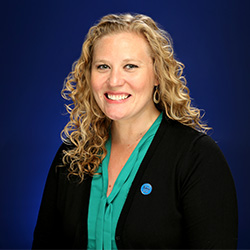Early Childhood Trauma Informed Care
The Early Childhood Trauma Informed Care Certificate (ECTIC) will provide students with a deep understanding of trauma and ACEs, and how they impact young children’s development. Students will learn how to create safe environments and implement trauma informed care so children feel comfortable to learn, explore, and interact! Learn more by attending a Virtual Information Session.
Program Details
- 3 courses (6 weeks per course) - complete the program in less than 6 months!
- Earn 9 units of college credit
- 100% online - connect with your instructors one evening per week
- Asynchronous Online coursework
- $1,170 per course ($3,510 total program cost)
- At least a high school diploma and some background of child development is preferred
- Financing available - apply today for scholarship opportunity
Meet the Team


